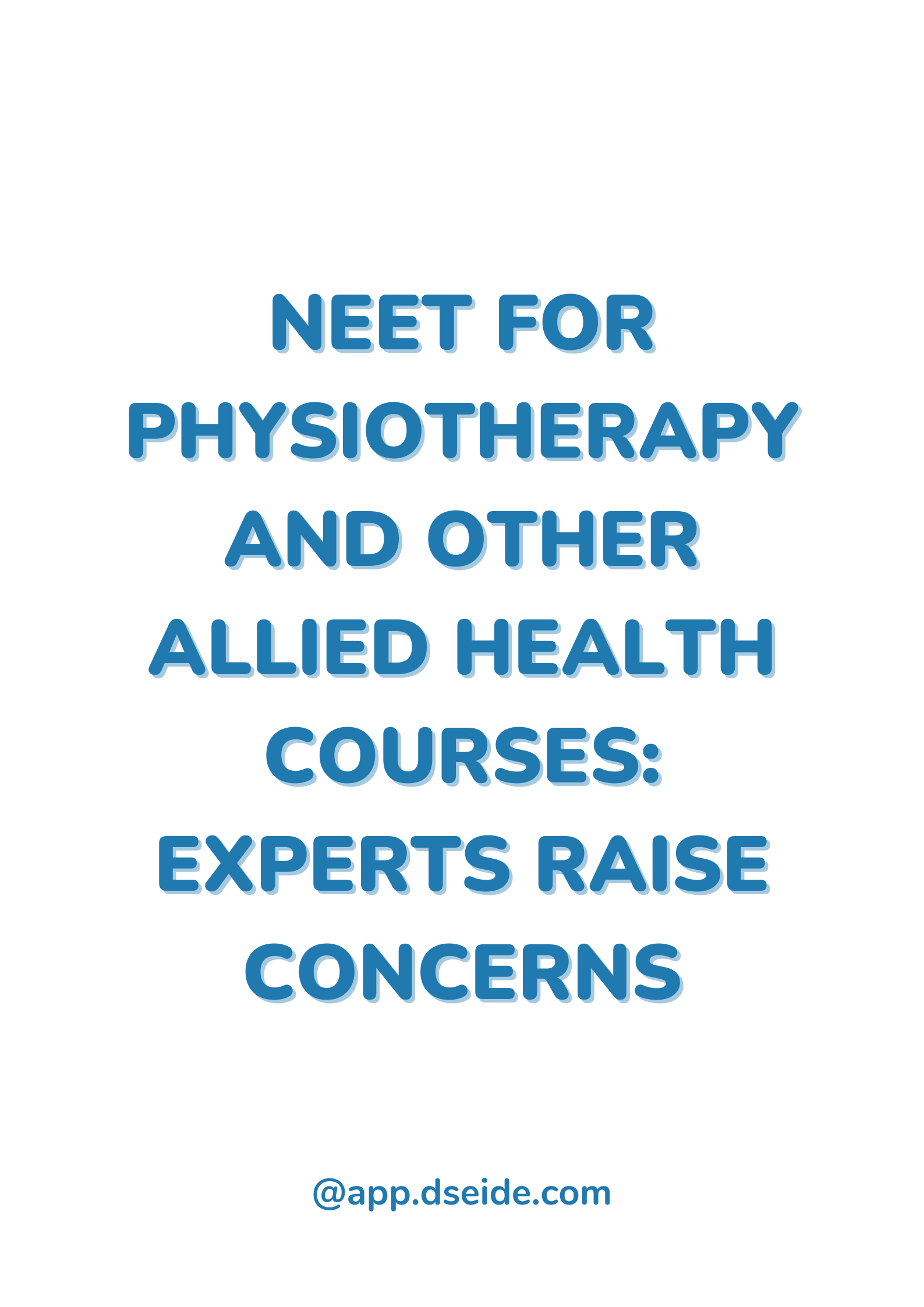The Union government recently announced that the National Eligibility-cum-Entrance Test (NEET) will be made mandatory for admission to physiotherapy and other allied health courses under a newly introduced competency-based curriculum. This move is said to be a part of a comprehensive overhaul of 10 professional programmes.
On April 23, the Union Health Ministry, alongside the National Commission for Allied and Healthcare Professions (NCAHP), unveiled the updated curriculum. According to a press release, the revised curriculum seeks to establish "consistency in educational content and delivery," and is set to be implemented across the country from 2026.
Among the 10 courses with revised curricula, five (physiotherapy, nutrition and dietetics, optometry, dialysis therapy, and medical radiology and imaging technology) will now require students to appear for NEET to gain admission. This move has sparked concern among educationists and professionals in the allied health sectors.
PB Prince Gajendra Babu, educationist and general secretary of the State Platform for Common School System-Tamil Nadu (SPCSS-TN), criticised the decision, calling it a slow push to bring allied medical courses under the umbrella of NEET.
SOURCE- The News Minute
#NEET #physiotherapy #alliedhealth #healthcare
On April 23, the Union Health Ministry, alongside the National Commission for Allied and Healthcare Professions (NCAHP), unveiled the updated curriculum. According to a press release, the revised curriculum seeks to establish "consistency in educational content and delivery," and is set to be implemented across the country from 2026.
Among the 10 courses with revised curricula, five (physiotherapy, nutrition and dietetics, optometry, dialysis therapy, and medical radiology and imaging technology) will now require students to appear for NEET to gain admission. This move has sparked concern among educationists and professionals in the allied health sectors.
PB Prince Gajendra Babu, educationist and general secretary of the State Platform for Common School System-Tamil Nadu (SPCSS-TN), criticised the decision, calling it a slow push to bring allied medical courses under the umbrella of NEET.
SOURCE- The News Minute
#NEET #physiotherapy #alliedhealth #healthcare
The Union government recently announced that the National Eligibility-cum-Entrance Test (NEET) will be made mandatory for admission to physiotherapy and other allied health courses under a newly introduced competency-based curriculum. This move is said to be a part of a comprehensive overhaul of 10 professional programmes.
On April 23, the Union Health Ministry, alongside the National Commission for Allied and Healthcare Professions (NCAHP), unveiled the updated curriculum. According to a press release, the revised curriculum seeks to establish "consistency in educational content and delivery," and is set to be implemented across the country from 2026.
Among the 10 courses with revised curricula, five (physiotherapy, nutrition and dietetics, optometry, dialysis therapy, and medical radiology and imaging technology) will now require students to appear for NEET to gain admission. This move has sparked concern among educationists and professionals in the allied health sectors.
PB Prince Gajendra Babu, educationist and general secretary of the State Platform for Common School System-Tamil Nadu (SPCSS-TN), criticised the decision, calling it a slow push to bring allied medical courses under the umbrella of NEET.
SOURCE- The News Minute
#NEET #physiotherapy #alliedhealth #healthcare




